This article was co-authored by Philip Glickman, PsyD. Dr. Philip Glickman is a Licensed Clinical Psychologist and the Director of Wellness Road Psychology with two locations in Dobbs Ferry and the Financial District of New York City. He specializes in cognitive-behavioral therapy, mindfulness techniques, treatment of anxiety, and life coaching. Dr. Glickman is a member of the American Psychological Association. He holds a BA in Criminology and Psychology from The University of Maryland College Park and an MA in Forensic Psychology from The City University of New York. Dr. Glickman also holds a PsyD in School and Community Psychology from Hofstra University.
There are 18 references cited in this article, which can be found at the bottom of the page.
This article has been viewed 49,612 times.
Coping with depression on your own is very hard. Whether you're away from family, lack friends or simply don't have a supportive network of either, undergoing a bout of depression without such support is deeply difficult. However, this lack of a social network may be part of what is contributing to your depression, and as hard as that can be to face, acknowledging this can be a vital part of your self-care, aiding your journey back to wholeness.
Steps
Reaching Out to Others
-
1Join some depression support groups. People who run such groups or who populate sites/forums of this kind are very helpful and experienced. It takes the sting off to talk to people in the same situation as you. Most of these people can give you advice on how to cope to (just as this article is doing with you).[1]
-
2Call Samaritans if you ever feel like talking. They are there to help you, from a few to many times. The negative side of calling this helpline is that they can't tell you anything about themselves, so that can feel a little depersonalized but it's still important to have a listening ear and reassurance. It's like call counselling whenever you want at any time.[2]Advertisement
-
3Don't worry about bothering your doctor. Make regular monthly or even weekly appointments, they won't mind.
- Discuss the value of getting yourself some good antidepressants. When you find ones that work for you, stick to them. If they don't work after at least three months, change them. Keep searching until you find the antidepressant that is right for you.[3] (Although it also acceptable if you decide that anti-depressants are not for you. There is no pressure).
-
4Do things to help others, you'll be surprised at what doing something as little as complimenting someone can make you feel happy. Try talking to people on depression forums who are experiencing a similar situation and seek to make them feel less alone. In the process, it may help you to feel less sad and alone.[4]
-
5Don't ever be afraid of calling an ambulance if you feel suicidal. Remember that ambulances are there for a reason––emergencies. Thinking of taking your life is an emergency. The staff at hospitals are very supportive and helpful, and you'll be able to see a mental health nurse within the hour.[5]
Using simple coping strategies
-
1Find some hobbies to help you cope. What gives you a sense of pride and accomplishment? Find something that takes your mind off... your mind. Hobbies can include things such as baking, painting, sewing, woodworking, renovating, restoring a vintage car, collecting things, etc. Or, perhaps you prefer physical endeavors, such as sports, swimming, hiking, cycling, etc.[6]
- When you feel the sadness begin to take over, do your hobby or exercise.
-
2Don't be afraid to cry. It's not weak, it's not stupid, it's a great way to feel better.[7]
-
3If you've got to the point where you can't stop crying though, take a shower. Something about there being so much water makes you stop crying.
-
4
-
5Make lists of helpful things. For example, how to feel better, what to do to make you feel better. Stick them on the wall to remind you of what you could be doing instead of feeling bad.[11]
-
6
-
7Dip into funny things. Fill the darkness with laughter, to remind yourself that it's okay to laugh and to feel good about things. There are quite a few ways to bring laughter into your life:
- Watch funny movies or online videos. There are plenty of comedies for you to indulge in.
- Read cartoons or funny books. Find a book of jokes and read them out loud.
- Make a Pinterest board of things that crack you up. Revisit it when you feel really low.
- Read blogs that make you laugh.
-
8Spend time with animals. Animals are amazing therapy for people who feel depressed. Spending time with your non-judgmental and loving pets can boost your feelings and help you to feel connected again. But it doesn't just have to be pets. You could sit in the park and watch the birds, visit the zoo and watch the tigers or chimpanzees, go for a hike and look for all the hidden activities of animals that normally pass you by. Stepping into the world as animals view it can help you to relax, to see things differently and to realize that you're not alone but that you are one important part of the great cosmos in which you live.[14]
Allowing yourself to let go
-
1Be selfish! You want to spend a lot of money on yourself for new clothes? Do it. Want to eat fatty food but don't want to gain weight? Do it anyway. Treat yourself because you really do deserve it. Take a day off work for yourself and treat yourself.[15]
-
2If you ever feel the need to be sad, just go with it. Listen to sad music, watch soppy films. Sometimes you have to embrace it to make it go away. You'll feel better afterwards.[16]
- Do not turn this into a habit. A once-in-a-while wallow is one thing; an everyday diet of sad movies, depressing music and a bleak environment will simply up the ante, allowing depression to become your reason for being. Do not allow it to win by feeding it the very things that stoke its existence.
-
3Date someone. This is not for everyone, but love is a great way to battle depression. It may seem like love is not something you seek out to get better. But you can have an open mind and give it a chance. You can either wait that one day you'll meet someone who can change your world in just a minute or you'll realize that what you need is someone who's been there all along. All you needed to do was ask.
- Scared about dating? Don't be and think of your health. A good romance can really make a difference.
- Please do not use love as a step to curing depression, because the other person may end up feeling used. Give back all the support you can to them, so they appreciate you for it despite knowing the truth.
Eliminating toxic influences
-
1Get rid of all the negative people from your life. Sometimes no support at all is plain better than negative support from people who spend all their time pointing out your foibles and attacking you. People who seek to manipulate you, dump their own problems on you all the time without thinking about your needs and who see nothing but dark clouds ahead, are typical negative types. Such people end up making you feel even worse and are detracting from your ability to remain whole. As hard as it may be, you are better off without their influence over you.[17]
- Stay away from negative people as much as possible. You might even cut ties with the worst offenders, to give yourself permanent breathing space.
- If you have no choice but to still interact with a negative person, reduce the interaction to a bare minimum.
- For example, if it's your boss, do what you are there to do, be polite and professional and refuse any socializing events in which you must mingle with this person; surround yourself by supportive coworkers and know the workplace harassment rules inside out.
- Or, if it's a family member, make it clear that you will not partake in the previous arguments or destructive competitiveness; simply do not engage and just be polite and aloof, and only attend the occasions where this person is when you really have to.
- If nasty things are said about you, pretend you haven't heard them and let them slide off you; remind yourself that such comments are the dying, feeble attempts of a toxic person seeking to keep you enmeshed in their drama.[18]
- Use positive self-talk to help boost your self-esteem even more.[19]
-
2Realize that negative people can induce a lot of guilt and/or shame in a depressed person. If you are seeking to remove such people from your life, do not be surprised if you feel guilty for not continuing the relationship or if they try to make you feel ashamed. Expect to feel some of this but also remind yourself that these are negative emotions that are part of the fallout of being in a toxic relationship and in time, they will pass, the more that you are no longer connected to the source of negativity.
Taking a break from technology
-
1Consider going on a techno-diet. If you have inhabited an online world filled with negativity, from cyber-bullying and trolling, to a constant feed of negative news and preachy commentators, it can mess with your head. Removing yourself from all of this negativity can clear your mind and provide you with a broader perspective of what really matters in the world. Most of all, it can help you to regain your sense of self that can sometime get shifted dramatically by constantly reading too many negative opinions online.[20]
- Remember that while many people may use the online sphere to share a prescription for how people (such as yourself) should be behaving/living/voting/believing, etc., much of the commentary is no more than opinion and when it is angry opinion, it's an ill-informed reflection of what such commentators feel is missing in their own lives. Do not take it to heart!
-
2Switch off your laptop or computer. Pull the plug on your phone. Stop using any digital device that you know you have a strong attachment to. Decide to take a break for several days, a week or even a month. If you feel you can't live without it, that's often a sign you need to learn how, in order to restore balance and self-control.[21]
-
3Set in place a disciplined regime for future use of such devices. After taking a break, consider carefully how you'll interact with the online sphere in future. Which elements were feeding your depression? It could be attacking and being attacked on forums, texting too much, reading too much into people's Facebook updates, trying to be a fount of all knowledge on Twitter, etc. Whatever has driven you to feel down as a result of online usage needs to be tackled and removed for all future interactions. Some ideas to help include:
- Answer emails at a set time each day. Do not stray beyond this time; let people know that if it's urgent, they need to phone you. Your emails should not dictate your life.
- Withdraw immediately from forums that get heated. Do not get drawn into any messy or nasty online discussions. Nothing is gained by such flare-ups; come back when things have calmed down (including you).
- Stop reading the news. The world won't fall apart because you've stopped reading nasty stories. Be more nuanced and choosy about the news items that you do read; stay informed on specific topics, such as business news or humanitarian efforts, by getting Google alerts or particular news feeds without dipping into any of the sensationalist stories aimed at making people feeling worse. Remind yourself that you do not have a duty to read sensationalism (and remember GIGO––garbage in, garbage out); there are plenty of positive ways to keep constructively engaged with the wider world.
- If something causes you to feel negative, stop looking at it, stop using it, stop interacting with it. Period.
Expert Q&A
-
QuestionHow can I stop unwanted thoughts?
 Philip Glickman, PsyDDr. Philip Glickman is a Licensed Clinical Psychologist and the Director of Wellness Road Psychology with two locations in Dobbs Ferry and the Financial District of New York City. He specializes in cognitive-behavioral therapy, mindfulness techniques, treatment of anxiety, and life coaching. Dr. Glickman is a member of the American Psychological Association. He holds a BA in Criminology and Psychology from The University of Maryland College Park and an MA in Forensic Psychology from The City University of New York. Dr. Glickman also holds a PsyD in School and Community Psychology from Hofstra University.
Philip Glickman, PsyDDr. Philip Glickman is a Licensed Clinical Psychologist and the Director of Wellness Road Psychology with two locations in Dobbs Ferry and the Financial District of New York City. He specializes in cognitive-behavioral therapy, mindfulness techniques, treatment of anxiety, and life coaching. Dr. Glickman is a member of the American Psychological Association. He holds a BA in Criminology and Psychology from The University of Maryland College Park and an MA in Forensic Psychology from The City University of New York. Dr. Glickman also holds a PsyD in School and Community Psychology from Hofstra University.
Licensed Clinical Psychologist Try using positive self-talk! For every negative or intrusive thing that pops into your head, you can say three positive things or come up with three positive things that you're grateful for or a positive spin on whatever is happening.
Try using positive self-talk! For every negative or intrusive thing that pops into your head, you can say three positive things or come up with three positive things that you're grateful for or a positive spin on whatever is happening. -
QuestionWhat kind of exercise is good for depression?
 Philip Glickman, PsyDDr. Philip Glickman is a Licensed Clinical Psychologist and the Director of Wellness Road Psychology with two locations in Dobbs Ferry and the Financial District of New York City. He specializes in cognitive-behavioral therapy, mindfulness techniques, treatment of anxiety, and life coaching. Dr. Glickman is a member of the American Psychological Association. He holds a BA in Criminology and Psychology from The University of Maryland College Park and an MA in Forensic Psychology from The City University of New York. Dr. Glickman also holds a PsyD in School and Community Psychology from Hofstra University.
Philip Glickman, PsyDDr. Philip Glickman is a Licensed Clinical Psychologist and the Director of Wellness Road Psychology with two locations in Dobbs Ferry and the Financial District of New York City. He specializes in cognitive-behavioral therapy, mindfulness techniques, treatment of anxiety, and life coaching. Dr. Glickman is a member of the American Psychological Association. He holds a BA in Criminology and Psychology from The University of Maryland College Park and an MA in Forensic Psychology from The City University of New York. Dr. Glickman also holds a PsyD in School and Community Psychology from Hofstra University.
Licensed Clinical Psychologist Every kind of exercise will work! If you're having a hard time, try to go on a light walk around the block, as it may be enough to help you cope.
Every kind of exercise will work! If you're having a hard time, try to go on a light walk around the block, as it may be enough to help you cope.
Warnings
- Seek medical advice for your depression; doing it alone doesn't mean foregoing good paid advice. These coping tricks should be used along with prescribed antidepressants (should you so choose) and counselling, as these will help to make you feel better.⧼thumbs_response⧽
References
- ↑ https://www.helpguide.org/articles/therapy-medication/support-groups.htm
- ↑ https://www.samaritans.org/how-we-can-help/contact-samaritan/
- ↑ https://psychcentral.com/depression/which-antidepressant-to-choose#effectiveness
- ↑ https://www.psychologytoday.com/us/blog/the-happiness-project/201311/feeling-lonely-consider-trying-these-7-strategies
- ↑ https://pubmed.ncbi.nlm.nih.gov/33351435/
- ↑ https://www.ncbi.nlm.nih.gov/pmc/articles/PMC3998225/
- ↑ https://www.psychologytoday.com/us/blog/emotional-freedom/201007/the-health-benefits-tears
- ↑ Philip Glickman, PsyD. Licensed Clinical Psychologist. Expert Interview. 19 August 2021.
- ↑ https://www.mind.org.uk/information-support/tips-for-everyday-living/nature-and-mental-health/how-nature-benefits-mental-health/
- ↑ https://my.clevelandclinic.org/health/diseases/15769-agoraphobia
- ↑ https://www.psychologytoday.com/us/blog/schlepping-through-heartbreak/201703/21-simple-things-you-can-do-feel-better-right-now
- ↑ Philip Glickman, PsyD. Licensed Clinical Psychologist. Expert Interview. 19 August 2021.
- ↑ https://psychcentral.com/lib/12-ways-to-shut-off-your-brain-before-bedtime/
- ↑ https://www.helpguide.org/articles/mental-health/mood-boosting-power-of-dogs.htm
- ↑ https://www.psychologytoday.com/us/blog/think-act-be/201611/4-ways-you-can-start-treating-yourself-better-today
- ↑ https://psychcentral.com/lib/why-feeling-sad-is-actually-good/
- ↑ https://www.entrepreneur.com/article/311990
- ↑ https://www.psychologytoday.com/us/blog/sapient-nature/201603/how-not-worry-about-what-others-think-you
- ↑ Philip Glickman, PsyD. Licensed Clinical Psychologist. Expert Interview. 19 August 2021.
- ↑ https://www.psychologytoday.com/us/blog/prescriptions-life/201207/too-much-time-online-makes-you-moodier-lonelier-and-obsessed
- ↑ https://www.psychologytoday.com/us/blog/prescriptions-life/201207/too-much-time-online-makes-you-moodier-lonelier-and-obsessed
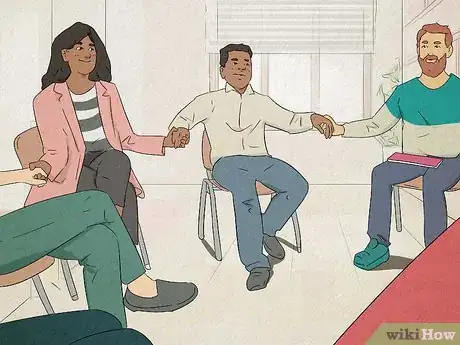
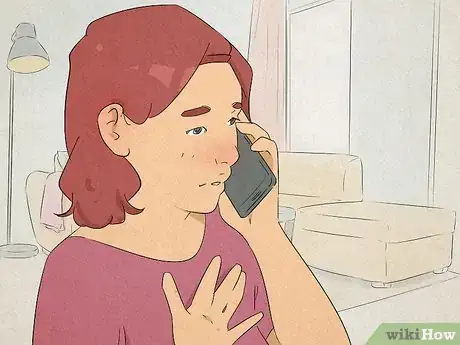
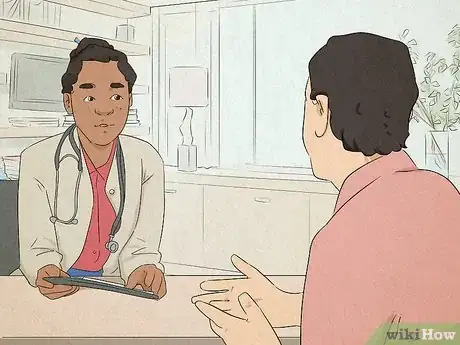
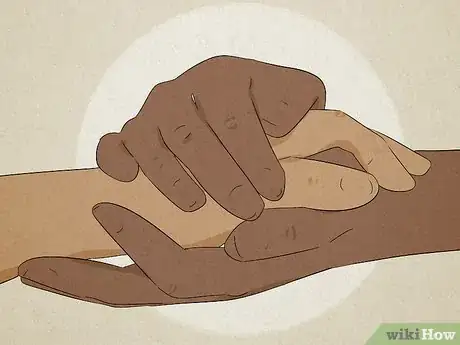
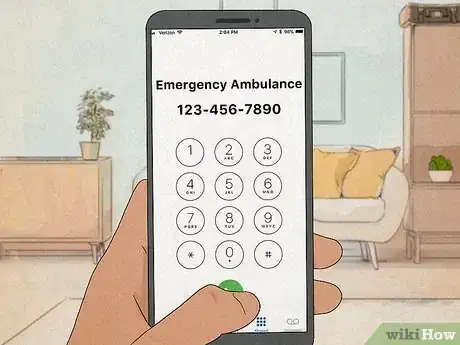
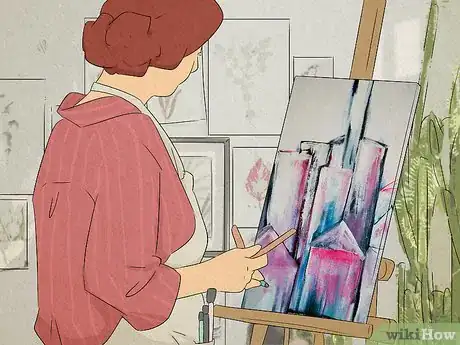

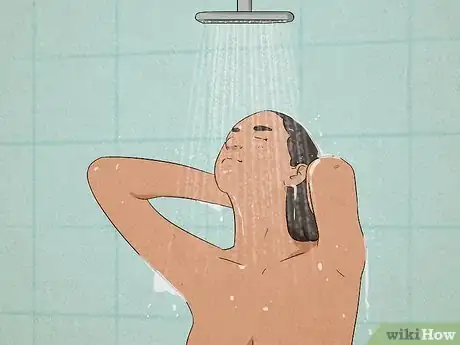
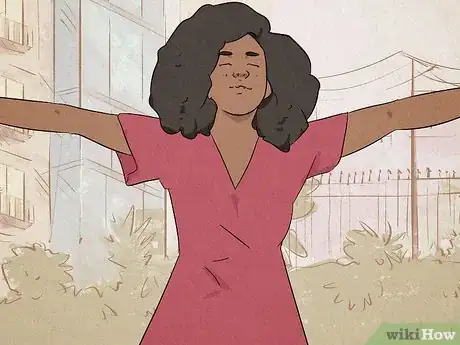

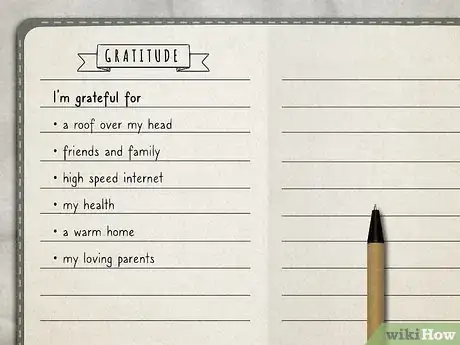
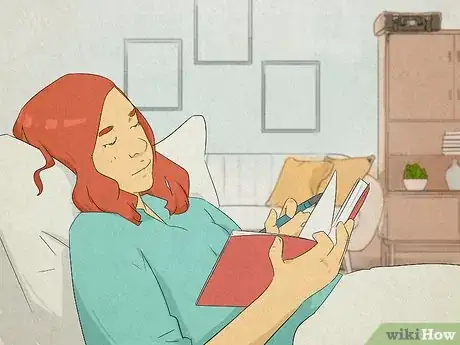
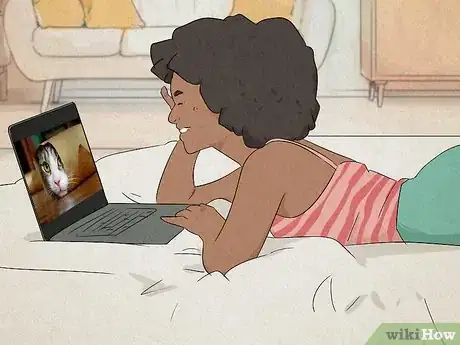
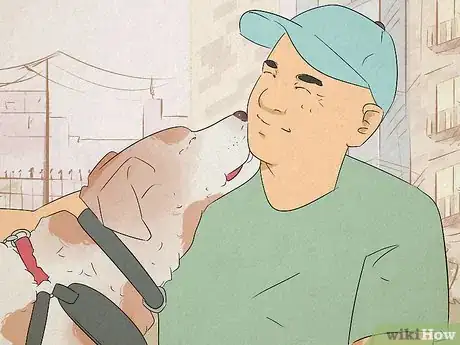
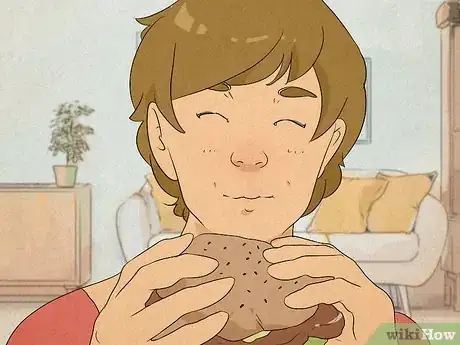
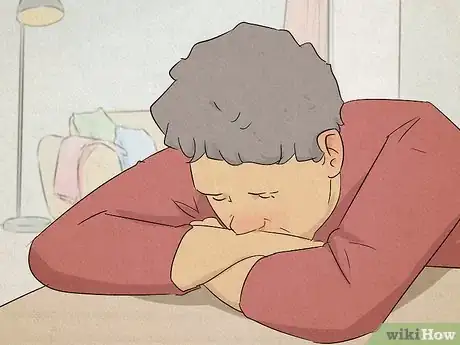
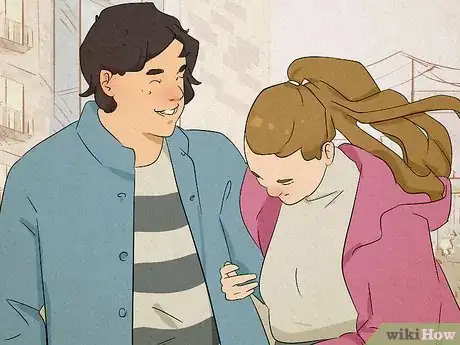
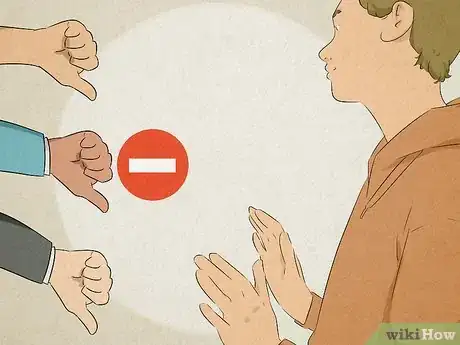
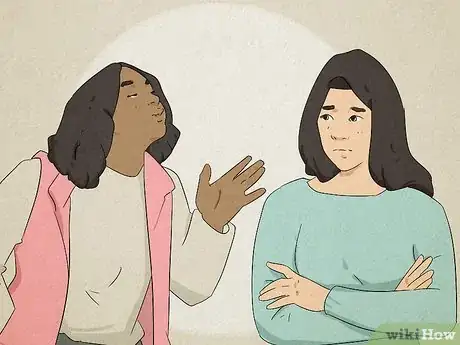
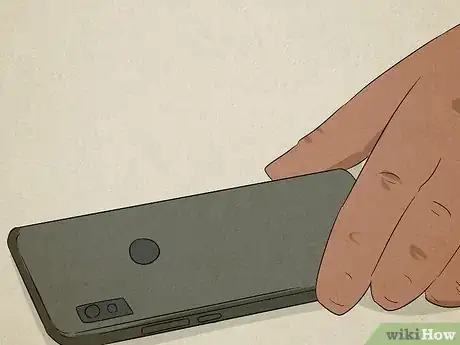
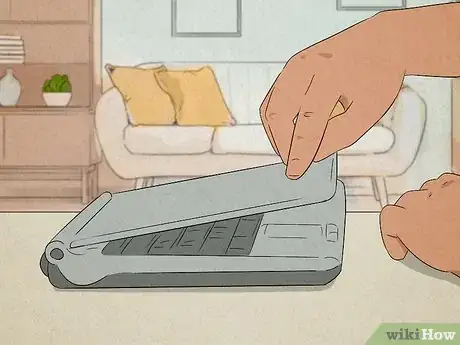
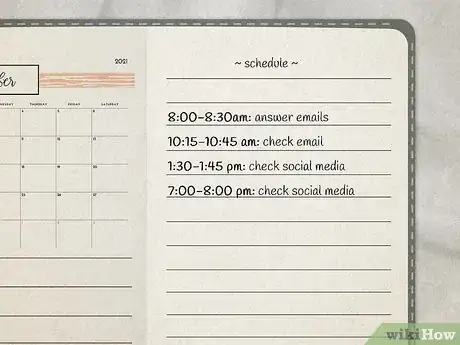
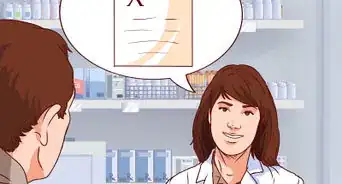

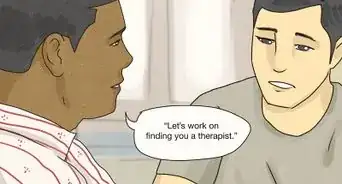
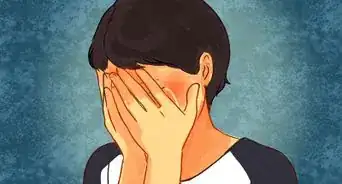
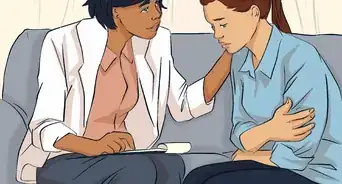
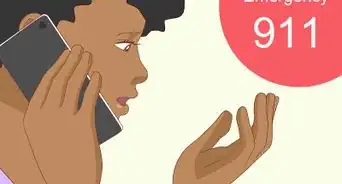
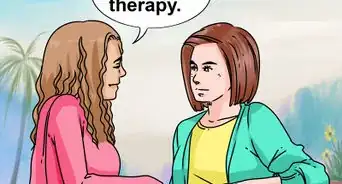
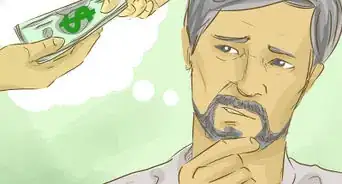


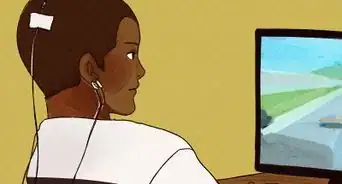
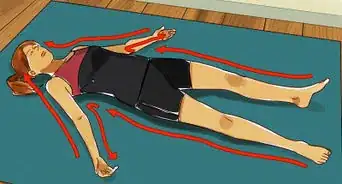
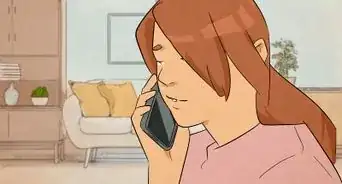









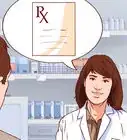
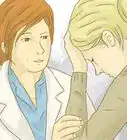
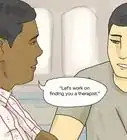




































Medical Disclaimer
The content of this article is not intended to be a substitute for professional medical advice, examination, diagnosis, or treatment. You should always contact your doctor or other qualified healthcare professional before starting, changing, or stopping any kind of health treatment.
Read More...